Being self-sufficient is more than just sustaining a lifestyle through agriculture by being away from the intense urban society. This is a vital life capability that can help people survive times of crisis, both predictable and unexpected ones. The current global events have shown that disasters such as health issues, diseases, and job losses can impact people without warning them. Seeing shortages in stores and restrictions on essential purchases showed how reliant people are on modern amenities and consumerism. On the other side of the spectrum, homesteading requires a commitment to a lifestyle of independence and self-sufficiency.
These next examples will always remain valuable in your lifestyle, even in times of crisis.
A Generator
You have a responsibility to keep the home running under any circumstance. A generator is a convenient way to run power tools and charge batteries in case of an energy outage or intermittent power. You may not need it for a long time, but when an emergency occurs, it is better to be prepared. There are several types of generators available: gasoline, biodiesel fuel, propane, natural gas, emulsified diesel, and solar powered. Regardless of what type you pick, ensure that your tanks are full and rotate the fuel storage regularly.
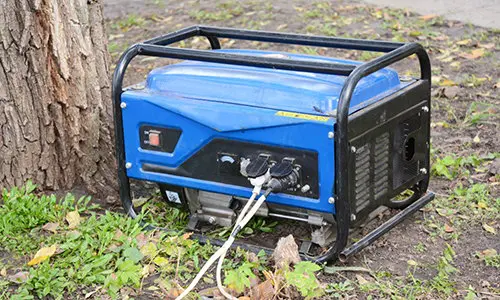
Pemmican
This is the ultimate survival food. It is an excellent source of energy and protein that can be stored for ever. You can use different types of fat to create pemmican, from beef suet to bacon drippings to rendered chicken fat, as well as dried fruit to add flavoring. This bar is a concentration of energy and nutrients, designed to be shelf-stable for a long time.
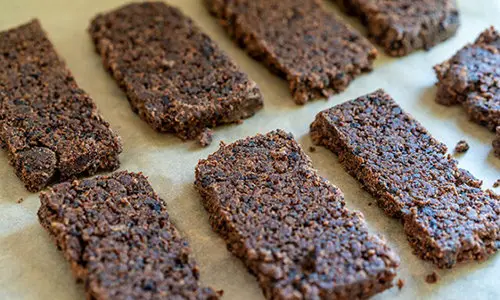
Frozen Vegetables
Proper freezing will preserve the freshness of fruits and vegetables and prolong their lifespan, feeding you during a period of food shortage. If stored correctly, they can be frozen for up to 18 months. Blanching your veggies is an important first step to follow before freezing. This will retain their nutrients, flavors, and colors.
Related: 10 Easy Ways to Turn Profit from Your Homestead
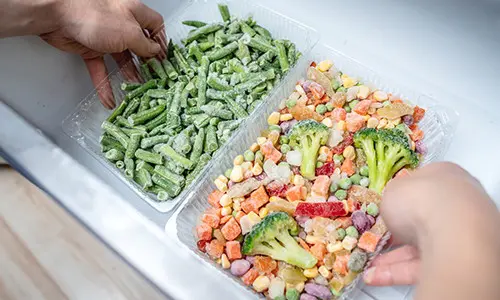
Making And/Or Mending Clothes
Crocheting, knitting, and sewing are not just mainstream hobbies for old ladies. Being able to sew and mend clothes can prove very useful if you are self-sufficient. Throughout history, hand sewing was the only way to provide essentials such as clothing and bedding. Today, this skill can be used to lengthen the lifespan of clothing for longer, or even recycling it by sewing a worn-out fabric into a quilt. You can build your sewing closet just like you would with a food pantry, keeping basic tools such as pins, needles, threads, seam rippers, and scissors. Patching and mending clothing for you or for your neighbors as a barter in a crisis is essential.
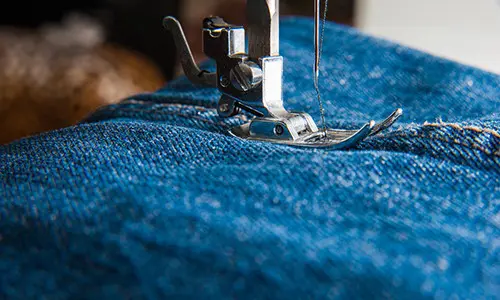
Woodworking
DIY woodworking is at the heart of homesteading. You can create the items you need from the comfort of your home and without spending a lot of money. This skill allows you to design and build many house-friendly items including a shelf, kitchen tools, carts, or structures that you need for your specific purposes. This technique is not only cost-effective but will often lead to a far better result than store-bought objects.
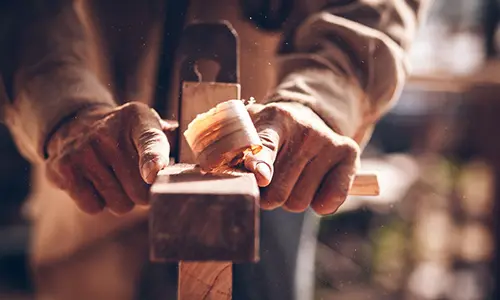
A Pantry
Is there enough food? This is one of the first questions that comes to mind during a crisis. While having enough supplies on hand is important, there are a few basic ingredients that should never be absent from a pantry:
- Beans – they are shelf-stable and packed with fiber and protein.
- Rice – combined with beans, whole grains keep the stomach full, whether alone or combined with soups and salads.
- Eggs – come in handy for a wide variety of daily meals.
- Flour – you can combine it with packaged yeast to bake bread or add eggs for a baking project.
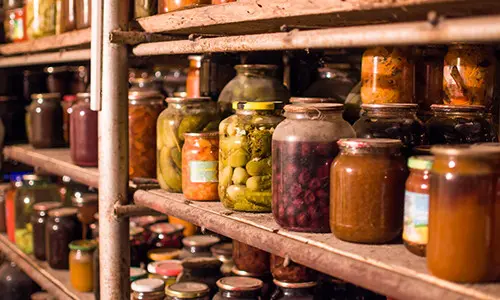
Coffee & Cigarettes
Combining coffee and cigarettes is a popular way to defuse from a long day or to start preparing for one, to treat the nerves, and to stay awake. Although this combination is not healthy for the cardiovascular system, it may be one of the few ways to mentally escape a time of crisis. These two are part of everyday habits, and in some cases they are considered vices. People cannot go further with their lives if they don’t have coffee or cigarettes.

Ammunition
It is best to keep a firearm for self-defense. In times of crisis, the chances of looters breaking into your home are higher, so you want to be prepared to scare them away. The goal is not to use this gun against a human target, but to have extra support if your life is on the line. Always keep your firearm in a safe place, so it does not endanger you or your family.
Also if your plan is to stockpile and trade ammo, make sure that you’ll have popular calibers from firearms for self-defense and hunting.
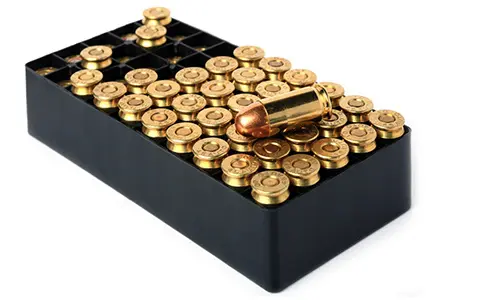
Rubbing Alcohol
Hygiene is a must, even while at home during a crisis. Therefore, it is best to stockpile isopropyl, rubbing alcohol to cope with many first-aid needs including:
- Cleaning wounds – alcohol helps with sanitizing wounds and sterilizing medical supplies.
- Stove fuel – it is a popular way to fuel a stove in case of emergency.
- Home disinfectant – cleaning bathrooms and kitchens with alcohol kills germs and guarantees better home hygiene, especially on surfaces like counters, sinks, mirrors, and toilets.

Painkiller Plant
Wild lettuce can be found anywhere across forage, and it grows everywhere – chances are that it is already populating your backyard. Aside from being a great addition to many recipes, wild lettuce functions as a painkiller as well. Also called lettuce opium, people use this herb to relieve their anxieties, physical pain and improve their sleep. So make sure to grow this plant in your backyard, you might need it in time of crisis.
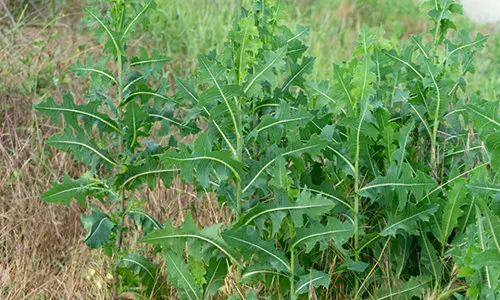
Wood
Nowadays wood is very expensive, and good wood for heating your home for example, is hard to find.
There are some unusual ways to heat your home without wood, however the most common ways are through central heat or a pellet stove. You will find that wood heating is a very reliable method. By burning wood, you will no longer need to rely on a power company to warm your place during the cold season, or in case of an electricity outage. Wood heating also supports a healthy lifestyle, as you will need to go outside in your backyard to cut the firewood in preparation for the winter heat.
Related: 25 Wood Craft Projects You Should Have In Your Backyard
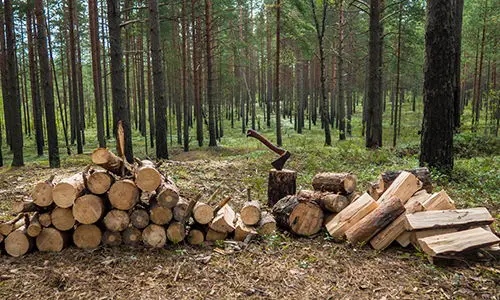
In times of crisis, whether big or small, self-sufficiency goes beyond growing your own food in the garden. From turning vegetable scraps into edible meals to making things with your hands, being a homesteader means reinventing your life in a way that surviving a crisis can be much more feasible. Every skill you add to your experience toolkit will help you become more knowledgeable and confident about how to handle times of uncertainty.
You may also like:
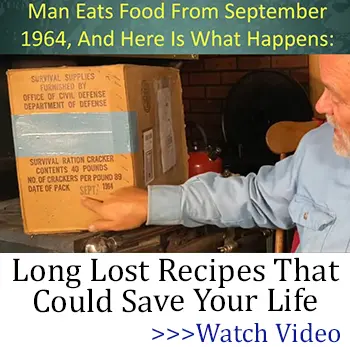 What We Learned Living on Our Food Storage for a Month
What We Learned Living on Our Food Storage for a Month
10 Things Cowboys Carried with Them in the Wild West to Survive (Video)
How to Prepare Your Homestead In Case Of a Natural Disaster
If You Have This Plant in Your Backyard, You Will Never Run Out of Soap

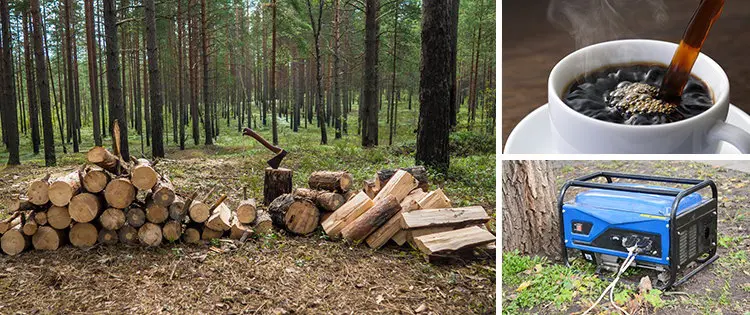








I love your website and your book! Great information.
I am a little concerned about the reference to tinctures since most are made with drinking alcohol, such as vodka. Above in the article it looks as if tinctures are to be made with rubbing alcohol.
I just wouldn’t want one of your readers to get the wrong idea on the type of alcohol to use if they ever should make their own tinctures at home.
God bless, keep up the amazing work!
Hi Mikaela,
Thank you for bringing this to our attention. Indeed, tinctures are made with drinking alcohol, such as vodka. We have removed that part.
excellent. thanks
I love reading everything that has to do with self- sufficient living, homesteading and Permaculture.. I have so many books about it, but haven’t been able to get a property yet. It would be wonderful to find a community of like mind, as in another article written here. I am looking towards south central Pennsylvania, or thereabouts.
Thank you for all of this great information!
Margie